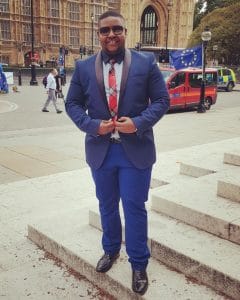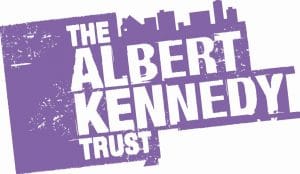
Gabriel Barnes talks political conflict, being transgender, and the Albert Kennedy Trust
Gabriel Barnes fled South Africa aged 16, and doesn’t remember much of life in the KwaZulu-Natal province. He does however recall conflict between the Inkatha Freedom Party and the African National Congress; violence that killed his mother in 1994, and his father – part of the IFP – in 2005.
After their dad’s passing, Gabriel and his sister sold all he had owned – “the house he built, the land he had got. We sold everything back to the village chief, and moved to Johannesburg with my father’s friend who was also part of the IFP.” They stayed there for a period in 2007, before coming to the UK in April 2008 “for safety”. He recollects being taken in by local authorities in Wandsworth, and thus finding asylum in Croydon a week after arriving in Britain.
In 2010 he had “exhausted” his case for claiming asylum due to the political issues in South Africa. He no longer had “an outstanding case at the Home Office. When you don’t have an outstanding case, they withdraw your accommodation until you put in a fresh claim.” Gabriel was female at the time, identifying as a lesbian, and could apply for accommodation as an LGBT asylum seeker. Until this was approved, though, he was homeless.
 From a hostel he rang the Albert Kennedy Trust, a charity for homeless LGBT youth with which he’d already been in contact. He told them he was homeless, with “nothing, absolutely nothing”. The trust provided money for food, clothes, toiletries, and any travel he had to make, while he waited for acceptance of his asylum claim.
From a hostel he rang the Albert Kennedy Trust, a charity for homeless LGBT youth with which he’d already been in contact. He told them he was homeless, with “nothing, absolutely nothing”. The trust provided money for food, clothes, toiletries, and any travel he had to make, while he waited for acceptance of his asylum claim.
AKT were also the first people he came out to as transgender. They then supported him emotionally, as well as financing his travel to medical appointments. Before transitioning, “in any relationship I had gone into with a female, I was always perceived in the male role. There was not a time when I was a ‘feminine lesbian’ or anything like that. I always thought: “I’m a guy, this is how I am.”
He is now a young ambassador for AKT, promoting the organisation’s activities, and sharing the impact it has had on his life. He is also in his final year at University of Salford, where he is completing a BSc in human biology and infectious diseases, with a view to work in helping trans people through the process of transitioning, as well as LGBT people affected by HIV.
Would he ever return to South Africa? “It’s been way too long now – it’s been over ten years. I don’t have any connections with South Africa anymore. If I went back I would have nothing to say to anybody.” He resumes, “In South Africa you still get trouble – there’s no real protection for the LGBT community – it’s just on paper. To start my own family here would be much better. I’m fully happy here, I have everything I really need, I am safe.”

